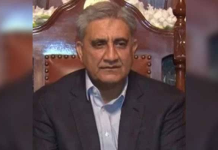The average annual economic growth between 2010 and 2023 has been lackluster, around 4 percent, and has been accompanied by a rise in Pakistan’s total debt as a share of its GDP, from 55 percent to 76 percent. Bangladesh, in contrast, grew at an annual average of 6.2 percent over the same period, while its debt to GDP ratio rose from 30 percent to 39 percent
Saifullah Ansar
ISLAMABAD,):Pakistan Business Forum (PBF) on Wednesday congratulated Muhammad Aurgazeb as new Finance Minister for Pakistan and expected in new IMF package no further burden shall be put on business community as competitive energy tariff is direly needed to deliver.
PBF Vice President, Chaudhry Ahmad Jawad while talking to media expressed his dissatisfaction over 220% increase in gas tariffs within one year, PBF have appealed to the newly-elected government to take notice, review the situation, and primarily focus on research and development (R&D) aimed at ensuring alternative fuel sources for the local industry.
He further said it is the need of an hour to devise regional trade agreement among South Asian countries to improve the economic well beings of billions of people; though Pakistan’s regional trade is below the desired level which needs to be seen in whole prospective before SIFC.
“He emphasized that in international relations it is a common axiom that a state can change its friends but it cannot replace its neighbours due to geographical compulsions. If neighbours cannot be replaced, ideally a state should enjoy at least cordial relations with its surrounding states if not the best relations”.
The average annual economic growth between 2010 and 2023 has been lackluster, around 4 percent, and has been accompanied by a rise in Pakistan’s total debt as a share of its GDP, from 55 percent to 76 percent. Bangladesh, in contrast, grew at an annual average of 6.2 percent over the same period, while its debt to GDP ratio rose from 30 percent to 39 percent, he added.
Jawad viewed the big step Pakistan could take to reinvigorate growth that would be to embrace trade with its neighbours, which is currently almost nonexistent. “The World Bank research, reveals that Pakistan’s exports could increase by 80 percent, with commensurate impacts on GDP and employment, if it had a normal trading relationship with its neighbours”.
The PBF official further said deeper economic engagement with neighbouring countries could also help address other acute problems in Pakistan’s economy, including rampant inflation, which has led to an increase in poverty over the last year; a rent-seeking private sector that constantly lobbies for protection and favorable tax treatment; and the long-standing energy crisis, exacerbated by the ongoing economic calamity.
In this way, a vibrant trading relationship with neighbouring countries can help us understand to realize significant structural gains in an organic rather than mandated manner: by inducing productivity improvement and innovation, reducing price distortions, and enabling higher inflows of foreign direct investment; Jawad said and added such gains are likely to be quite important for the Pakistani economy.
However to find the trade potential we may be use the gravity model of trade. The gravity model uses variables GDP, distance, RTA (Regional Trade Agreements) imports and exports of the reporting and partner countries, common language, tariffs and non-tariff measures, and many other variables concerning trade. The value of trade is directly related to the mass (GDP) of the economy and indirectly related to the distance between them. In short, trade is directly proportional to the product of the GDPs of economies and indirectly proportional to the distance between them.
Statistically, a one percent change in the tariffs rate will decrease 0.3 percent in Pakistan’s total trade. Moreover, a one percent increase in the GDP of the partner countries will increase Pakistan’s total trade by 0.5 percent; PBF official stated.
Similarly for Afghanistan, the Pakistan Business Forum stated that to realise the true potential of trade Pakistan and Afghanistan ought to improve trade facilitation, which at the moment is quite nebulous. The APTTA emphasises upon such facilitation. Trade facilitation could be enhanced through streamlined payments settlement and improved insurance mechanisms.
For this, an integrated banking system needs to be developed. Moreover, use of bonded carriers, visa issuance, trade financing, tax collection, and documentation also need to be simplified.

















